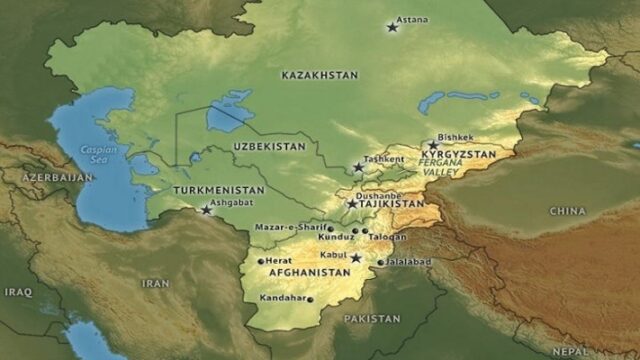Pakistan Can Tip the Balance of Power in Central Asia

Colluding with the US on destabilizing Afghanistan and returning Western military infrastructure to the region would turbocharge the emerging Turkic Bloc’s rise at the expense of Russia’s influence in Central Asia while reconsidering these plans that Shoigu alluded to would help stabilize the region.
Secretary of the Security Council Sergey Shoigu published an article about Afghanistan late last month at the publicly financed Rossiyskaya Gazeta. The purpose was to contextualize why Russia became the first country over the summer to formally recognize the Taliban as Afghanistan’s legitimate rulers. He briefly mentioned how this will lead to closer cooperation against drugs and terrorism while also warning about the continued threats of foreign terrorists and a return of Western military infrastructure to the region.
As regards the first of these threats, he said that “The situation is aggravated by the recorded facts of the transfer of militants from other regions of the world to Afghanistan. There is reason to believe that behind these actions are the special services of a number of Western countries, which continue to hatch plans to destabilize the region, to create chronic centers of instability near Russia, China and Iran by means of extremist groups hostile to the Taliban.”
Here’s what he said with respect to the second: “It is also clear that the Western powers, having lost their positions in the Afghan direction, are hatching plans to return NATO military infrastructure facilities to the region. Despite declarative statements about their lack of intention to recognize the Taliban’s power, London, Berlin and Washington are demonstrating their determination to get closer to the Afghan leadership. It is no coincidence that their emissaries have recently been frequenting Kabul.”
He conspicuously didn’t describe how these foreign terrorists are entering Afghanistan with the support of Western spies, nor did he talk about how Western military infrastructure could return to the region. A quick glance at the map reveals that the easiest route for both is through Pakistan, which is nowadays run by a pro-US de facto military regime that nonetheless still enjoys cordial ties with Russia. Pakistan also has a history of supporting extremist groups and functioning as the US’ top regional ally.
In fact, the US has openly favored Pakistan over India in recent months, thus suggesting that there’s more to their rapid rapprochement under Trump than meets the eye. Another relevant point is that Pakistan is also allied with Turkiye and Azerbaijan, which aspire to create a Turkic Bloc in Central Asia that’ll be turbocharged by the new TRIPP Corridor facilitating their and NATO’s military logistics to this region. US-orchestrated and Pakistani-enabled instability in Afghanistan can hasten these plans.
The Armenian precedent of manipulating allies’ perceptions of Russia’s reliability could then be replicated in Central Asia for having them ultimately replace the CSTO with a combination of NATO and the Turkish-led “Organization of Turkic States” (OTS). Tajikistan isn’t Turkic so it might gravitate towards NATO instead of the OTS if it thinks that Russia isn’t ensuring its security or is too chummy with the unfriendly Taliban while neutral Turkmenistan would be expected to cultivate closer ties with both.
This scenario could be catalyzed by US-Pak collusion, but Russia’s reaction has been to not overreact in the hopes that it, China, and Iran can persuade Pakistan to reconsider in pursuit of the greater multipolar good. Whether this is wishful thinking or masterful diplomacy remains to be seen, but the fact is that foreign terrorists and Western military infrastructure can most easily enter Afghanistan and the region via Pakistan, thus imbuing Islamabad with outsized influence over the balance of power in Central Asia.
https://thealtworld.com/andrew_korybko/pakistan-can-tip-the-balance-of-power-in-central-asia
